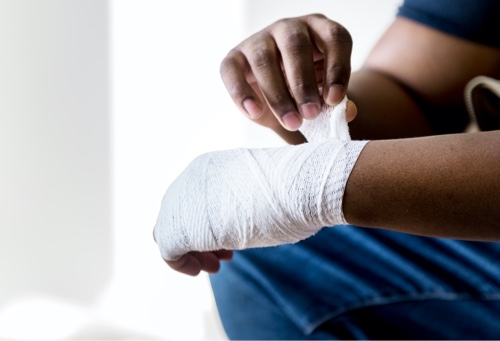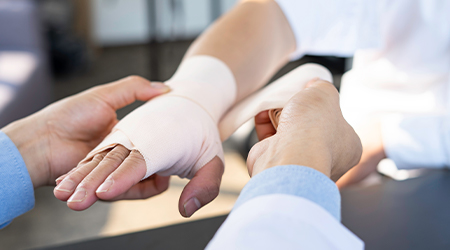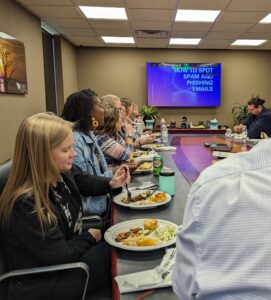
Work injuries happen every day, but where and when they happen can make all the difference in whether or not you qualify for worker’s comp. In South Carolina, workers’ compensation insurance pays benefits to injured employees when they have been injured on the job. The rule of thumb is that an employee must be engaged in assigned job duties when injured to be eligible for benefits. As such, accidents that occur while at lunch or on another authorized break usually do not qualify. However, qualifying for workers’ compensation benefits is more nuanced than that, and there are always exceptions.
Situations do exist where a worker may collect workers’ comp benefits for an injury sustained while on a lunch break. Examples include a working lunch or running work-related errands on a lunch hour. Proving that to the insurance company can be difficult, and one wrong move could result in a denied claim. Anytime you’ve been injured at work and told you are not eligible for workers’ comp, you should consult a knowledgeable South Carolina workers’ compensation attorney. The consultation is free and will help you understand your rights and the options available to you.
Our workers’ compensation attorneys at Joye Law Firm can review the circumstances of the injury. We will help you understand if you have a right to claim workers’ comp benefits after an injury while on a break. Our guidance is based on more than 300 years of combined experience standing up for injured people in South Carolina. We aim to help you recover the maximum workers’ comp benefits available to you under South Carolina law.
Call us today or fill out this online form to schedule a free legal consultation. Our firm has offices in North Charleston, Myrtle Beach, Columbia, Clinton, and Summerville. We represent work injury victims throughout the state of South Carolina. If you can’t come to us, we’ll come to your home or a location where you feel comfortable.
What is a ‘Break’ According to SC Workers’ Compensation Law?
Workers’ compensation is a state-run insurance program that covers employees who suffer injuries on the job or who develop illnesses related to their jobs or work environments.
Under South Carolina workers’ compensation law, compensable injuries are those caused by accidents arising out of and within the course of employment. Typically, this means the employee was performing job-related duties at the time of the accident. When an injury that occurred during a break or lunchtime is under consideration, the phrase “in the course of employment” is key.
You may be surprised to learn that there are no federal or state rules that require a South Carolina employer to provide a meal (lunch) period or breaks to their employees. However, if an employer chooses to do so, breaks, usually lasting less than 20 minutes, must be paid. Meal or lunch periods (usually 30 minutes or longer) do not need to be paid, as long as the employee is free to do as they wish during the lunch period.
If you have suffered an injury while on a lunch break at work, the question for workers’ compensation eligibility becomes: Were you freely doing as you wished on your lunch break, or did your activities that led to the injury arise out of your course of employment?
Why You Need to Speak to a Lawyer If You Get Injured at Work During Lunch
There are countless scenarios for how someone might become injured while on a lunch break at work. The specific details of what you were doing when the accident occurred must be analyzed to determine your eligibility for workers’ comp benefits.
A supervisor or a human resources representative might reflexively tell you that you don’t qualify for workers’ compensation based on their understanding of the coming and going exception. But as we discussed above, there are some scenarios where you may be entitled to benefits for injuries despite being on a lunch break. That is why it’s important to speak to a lawyer who will look out for your own interests first rather than your employer’s.
You become eligible for workers’ compensation medical benefits in South Carolina as soon as you are injured on the job. You also become eligible for wage replacement benefits after a workplace injury has kept you out of work for at least seven days. You should notify your employer as soon as possible about any injury that requires medical care, and ask for workers’ compensation benefits. Your employer should file for benefits for you.
Next, you should speak to a workers’ compensation. At Joye Law Firm, our attorneys can assess the benefits you should receive under the law. If your employer fails to report your injury, denies your eligibility for workers’ comp, or refuses to provide you with all of the benefits you deserve—we can help you.







